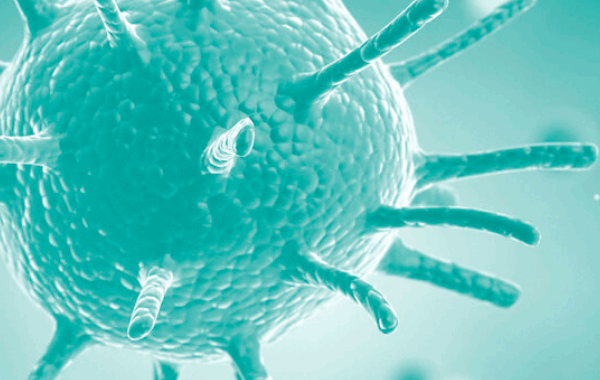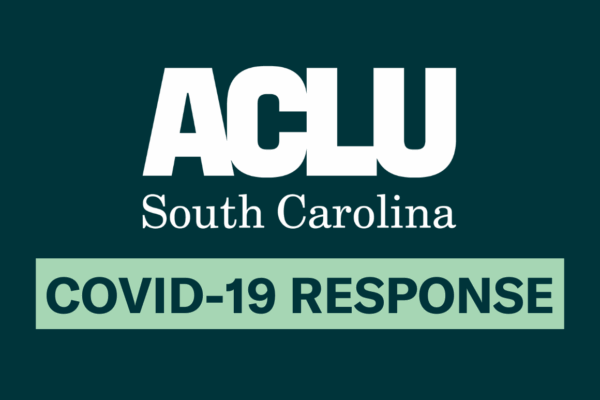CHARLESTON — South Carolina criminal justice officials should heed public health experts’ advice and immediately release individuals in detention who are at high risk of severe illness or death from COVID-19, wrote the ACLU of South Carolina in a letter to stakeholders today. In the letter, the ACLU asks to ensure that system actors are responding to recommendations put forth by public health experts, specifically calling for the immediate release from prisons and jails of communities identified by the Centers for Disease Control and Prevention (CDC) as vulnerable, as well as people currently in pretrial detention, to prevent a public health crisis.
“Public health experts recognize that there is a heightened risk of infection for people who are involved in the criminal justice system. From policing, prosecution and pretrial hearings, to sentencing, confinement, and release, every aspect of the system must come under intense scrutiny for how it responds to this national public health crisis” said ACLU of South Carolina Criminal Justice Policy and Legal Counsel Shirene Hansotia.
In the letter, the ACLU of South Carolina is calling on:
- Governor Henry McMaster to grant commutations to anyone identified by the CDC as particularly vulnerable whose sentence would end in the next two years, to anyone whose sentence would end in the next year, and to anyone currently being held on a technical (crimeless) supervision violation.
- Police to stop arresting people for minor offenses and in other circumstances issue citations in lieu of arrest so that people can return home, balancing the need for arrest with the overwhelming public safety concerns presented by coronavirus.
- Solicitors to avoid cash bail requests and move for release in all but the very few cases where pretrial detention is absolutely the least restrictive means necessary to ensure a person’s return to court. They should also institute a review-and-release protocol in cases which bail was already sought in the past 30 days and the person is currently detained.
- Judges to allow anyone with an open criminal case and upcoming hearing the chance to voluntarily waive that hearing or conduct that hearing via telephone or video conference.
- Sheriffs, Jail Administrators, and SC Department of Corrections Officials to ensure that facilities are as empty, safe, and clean as possible and that hygiene products are free and readily available to incarcerated people and staff.
- Probation and Parole Agents and Parole Boards to expedite and expand release opportunities for incarcerated people, reducing the population in prisons as recommended by health experts. Boards should institute a presumption for release for all people who have a parole hearing scheduled in the next two years.
Public health experts and groups such as Dr. Gregg Gonsalves, doctors working in New York City Hospitals, Dr. Marc Stern, Dr. Oluwadamilola T. Oladeru and Adam Beckman, Dr. Anne Spaulding, Homer Venters, andJosiah Rich have all clearly stated that preventing the harm inflicted by SARS-CoV-2 and COVID-19 can become immensely more difficult for people involved in the criminal justice system. By following the recommendations outlined in the ACLU’s letter, state and local officials can create a culture in which transparency, safety, and the health of all people is the paramount concern.
Documents
Related Content

ACLU of South Carolina Demands the Release from Prisons and Jails of Communities Vulnerable to COVID-19

South Carolina’s Coronavirus Response Plan Must Protect the Health, Safety, and Civil Liberties of All

ACLU of South Carolina Launches COVID-19 Email “Hotline” to Monitor Response in SC Prisons and Jails
Stay Informed
Sign up to be the first to hear about how to take action.
By completing this form, I agree to receive occasional emails per the terms of the ACLU’s privacy statement.
By completing this form, I agree to receive occasional emails per the terms of the ACLU’s privacy statement.

